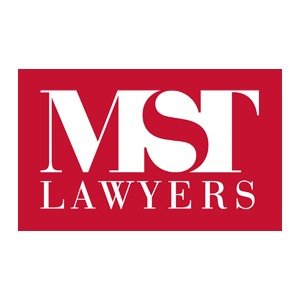Best Franchising Lawyers in Mount Waverley
Share your needs with us, get contacted by law firms.
Free. Takes 2 min.
List of the best lawyers in Mount Waverley, Australia
About Franchising Law in Mount Waverley, Australia
Franchising in Mount Waverley, Australia, is governed by a mix of Australia’s federal laws and the local Victorian laws. Franchising is a popular business method in Mount Waverley and across Australia, wherein businesses enter into a legally binding agreement that allows individuals or organizations to trade under the name and system of an established business.
Why You May Need a Lawyer
Given the complexities of franchising laws and contractual agreements, there are several instances where you may require a lawyer. Some of these situations include negotiating terms with franchisees or franchisors, resolving franchise disputes, becoming or setting up a franchise, understanding and conforming to the Franchise Code of Conduct, or dealing with any franchising law infringements.
Local Laws Overview
Franchising in Mount Waverley, as across Australia, is primarily governed by the Franchising Code of Conduct, which is regulated by the Australian Competition and Consumer Commission (ACCC). The Code includes mandatory requirements for franchisors such as disclosure documents, cooling off periods, dispute resolution methods and more. Victoria also has specific laws relevant to franchising like the Retail Leases Act that handles leasing issues in franchising and it is crucial to be compliant with these laws.
Frequently Asked Questions
What rights do I have as a franchisee?
As a franchisee, you have rights under the Franchise Code of Conduct, which includes the right to accurate disclosure documents, a cooling-off period, and dispute resolution methods.
What obligations do I have as a franchisor?
The Franchise Code of Conduct mandates several obligations for franchisors, including providing accurate disclosure documents, not acting in bad faith, and offering dispute resolution methods.
What is a disclosure document?
A disclosure document provides important information about the franchisor and the franchise system which must be provided to the franchisee before the signing of any agreement.
Can I terminate a franchise agreement?
The circumstances surrounding the termination of franchise agreements are complex and differ based on individual circumstances. If you're unsure, you should seek legal advice.
What if there is a dispute with my franchisor or franchisee?
Disputes in franchising are often resolved through mediation as per the Franchising Code of Conduct. In case mediation doesn't resolve the issue, legal action may need to be taken.
Additional Resources
You may find additional resources at the Australian Competition and Consumer Commission (ACCC) website, which provides information relevant to franchising and the Franchise Council of Australia, that provides a range of resources and supports the franchising sector.
Next Steps
If you require legal assistance with franchising, it's recommended to consult a lawyer experienced in franchising law. Ensure you provide them with relevant documents related to your franchising agreement, or any other supporting documents that could assist in your case.
Lawzana helps you find the best lawyers and law firms in Mount Waverley through a curated and pre-screened list of qualified legal professionals. Our platform offers rankings and detailed profiles of attorneys and law firms, allowing you to compare based on practice areas, including Franchising, experience, and client feedback.
Each profile includes a description of the firm's areas of practice, client reviews, team members and partners, year of establishment, spoken languages, office locations, contact information, social media presence, and any published articles or resources. Most firms on our platform speak English and are experienced in both local and international legal matters.
Get a quote from top-rated law firms in Mount Waverley, Australia — quickly, securely, and without unnecessary hassle.
Disclaimer:
The information provided on this page is for general informational purposes only and does not constitute legal advice. While we strive to ensure the accuracy and relevance of the content, legal information may change over time, and interpretations of the law can vary. You should always consult with a qualified legal professional for advice specific to your situation.
We disclaim all liability for actions taken or not taken based on the content of this page. If you believe any information is incorrect or outdated, please contact us, and we will review and update it where appropriate.









